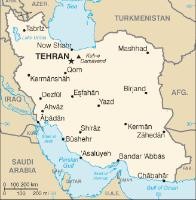As a fragile ceasefire teeters in Lebanon, a broad consensus among Western analysts has emerged with the view that the Islamic Republic of Iran is the main regional victor of the war between Israel and Hezbollah. Certainly the fact that Hezbollah survived Israel's one-month assault has brought strategic and public relations dividends to Iran (and to a lesser extent Syria), given that the Islamic Republic is Hezbollah's major financial and military backer. Yet what is the nature of this declared Iranian success and what are its implications? If Iran has enhanced its strategic viability and increased its regional popularity, then this will serve as a viable defensive shield for the Islamic Republic against the threat of U.S. or Israeli military strikes on its nuclear and defense facilities, or in the unlikely event of direct American military intervention. But an attempt by Iran to use this strategic and political capital offensively will likely backfire; causing Iran to fall victim of over-reach should it embark on a strategy of overarching regional supremacy. Indeed the Islamic Republic would do well to observe the recent experience of the Bush administration in its recent attempts to re-orient the Middle East. When hostilities broke out on July 12 it was immediately assumed in press analysis that Iran had encouraged Hezbollah to provoke Israel into a military confrontation to distract international attention from its nuclear program. The evidence advanced to confirm this theory, however, has been circumstantial. To hazard a guess, it is more likely that Hezbollah arrived at its own decision to engage in the cross-border raid -- possibly with Iranian knowledge -- and in doing so miscalculated on Israel's response. Hezbollah's leader, Hassan Nasrallah, admitted as much over the weekend. According to the Middle East scholar Anthony Cordesman of the Center for Strategic and International Studies, who recently wrote in a study titled Preliminary Lessons of the Israeli-Hizballah War: "One key point that should be mentioned more in passing than as a lesson, although it may be a warning about conspiracy theories, is that no serving Israeli official, intelligence officer, or other military officer felt that the Hezbollah acted under the direction of Iran or Syria."
Overreach a Danger for Ascendant Iran

